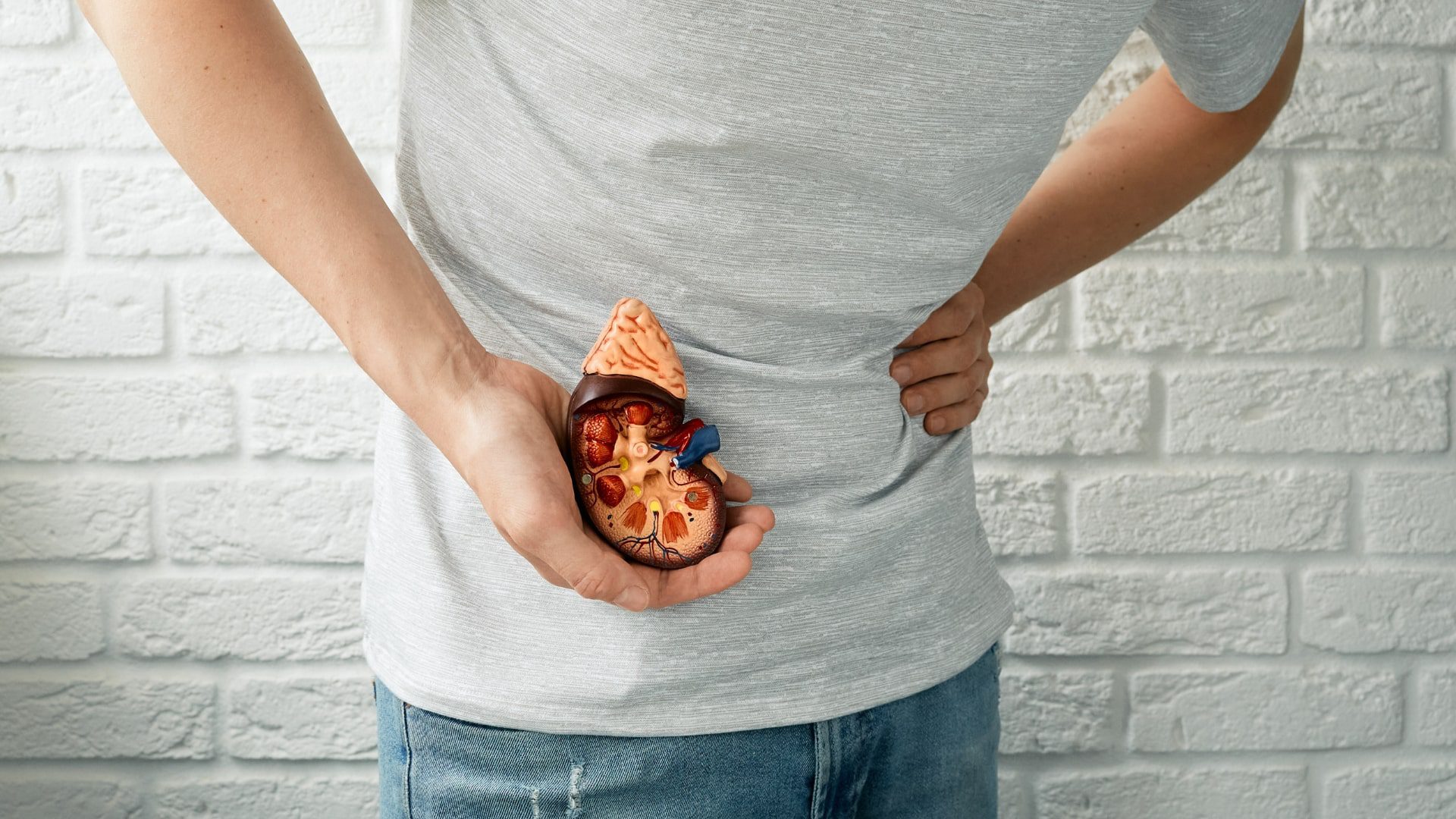
Kidney stones are one of the most painful yet common urinary tract disorders affecting millions of people worldwide. Understanding the early warning signs of kidney stones can help you seek timely treatment and prevent severe complications. In this guide, we’ll explore what kidney stones are, their causes, symptoms, diagnosis, and prevention tips — all explained in simple terms.
Table of Contents
What Are Kidney Stones?
Kidney stones, also known as renal calculi, are hard deposits made up of minerals and salts that form inside your kidneys. They can vary in size — from tiny grains to large stones that block urine flow and cause intense pain.
The stones usually develop when your urine contains more crystal-forming substances (like calcium, oxalate, or uric acid) than the fluid can dilute.
Types of Kidney Stones
There are four main types of kidney stones, each formed by different substances:
-
Calcium Stones: The most common type, often formed from calcium oxalate.
-
Uric Acid Stones: Common in people who consume high amounts of meat or suffer from gout.
-
Struvite Stones: Usually develop after urinary tract infections (UTIs).
-
Cystine Stones: A rare genetic type caused by excessive cystine in the urine.
First Warning Signs of Kidney Stones
Recognizing the early symptoms of kidney stones is key to preventing further complications. Here are the main warning signs to watch out for:
1. Sharp Pain in the Back or Side
One of the most common and earliest signs is sudden, severe pain in the lower back, side, or below the ribs. The pain may come in waves and move towards the lower abdomen and groin as the stone travels through the urinary tract.
2. Pain During Urination
If you experience burning or sharp pain while urinating, it could indicate that the stone has reached the junction between the ureter and the bladder.
3. Frequent Urge to Urinate
A persistent or increased urge to urinate, even when little urine comes out, is another sign of a kidney stone moving into the lower urinary tract.
4. Cloudy or Foul-Smelling Urine
Kidney stones can cause urine discoloration or make it appear cloudy due to infections. Foul-smelling urine is often a result of bacteria present in the urinary tract.
5. Blood in Urine (Hematuria)
If your urine appears pink, red, or brown, it may contain traces of blood — a strong indicator of kidney stones or irritation in the urinary tract.
6. Nausea and Vomiting
As the body reacts to severe pain or infection, nausea and vomiting may occur along with other symptoms.
7. Fever and Chills
If a kidney stone is accompanied by fever or chills, it may indicate a kidney infection, which requires immediate medical attention.
Causes and Risk Factors
Kidney stones can form due to several reasons, including:
-
Dehydration: Not drinking enough water is the leading cause.
-
High-Sodium Diet: Excess salt increases calcium in urine.
-
Excessive Animal Protein: Red meat, poultry, and seafood can raise uric acid levels.
-
Genetics: A family history of kidney stones increases your risk.
-
Certain Medical Conditions: Such as obesity, gout, or digestive diseases.
When to See a Doctor
Seek immediate medical attention if you experience:
-
Severe, unrelenting pain
-
Blood in urine
-
Fever, chills, or vomiting
-
Difficulty passing urine
Ignoring these symptoms can lead to serious complications such as kidney infection or renal failure.
Diagnosis of Kidney Stones
Doctors may use several tests to confirm the presence of kidney stones:
-
Urine Test: To check for crystals, infection, or blood.
-
Blood Test: To detect high calcium or uric acid levels.
-
Imaging Tests: CT scans or ultrasounds help locate and size the stones.
Natural Ways to Prevent Kidney Stones
Here are a few lifestyle changes to help reduce your risk naturally:
-
Stay Hydrated: Drink at least 2–3 liters of water daily.
-
Limit Salt and Sugar: Excess sodium increases calcium buildup.
-
Eat More Fruits and Vegetables: They balance the body’s pH and reduce acidity.
-
Avoid Too Much Oxalate: Cut down on spinach, beetroot, and nuts if you’re prone to stones.
-
Include Citrus Fruits: Lemon and orange juices help prevent stone formation.
The first warning signs of kidney stones — such as back pain, painful urination, and blood in urine — should never be ignored. Early detection, proper hydration, and dietary changes can prevent severe complications. If symptoms persist, consult a healthcare professional or urologist for personalized treatment.


